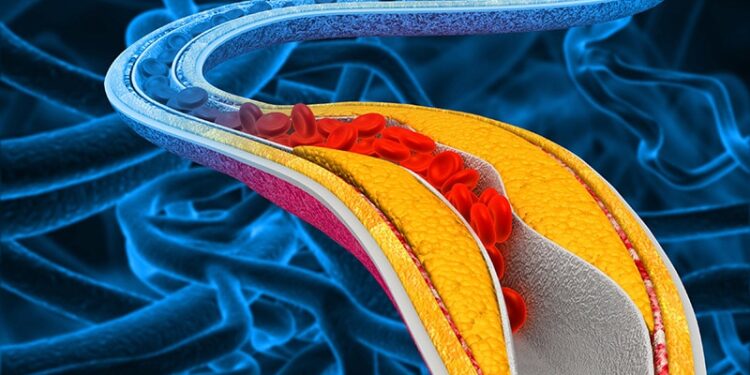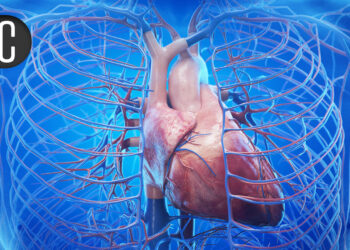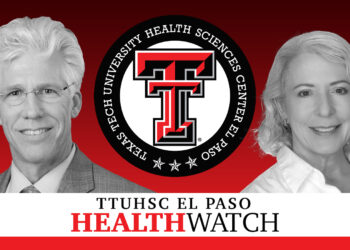TOPLINE:
For adults younger than 40 years, higher cumulative exposure to atherogenic lipoprotein particles — apolipoprotein B, low-density lipoprotein particles, and triglyceride-rich lipoprotein particles — was associated with a significant increase in the risk for atherosclerotic cardiovascular disease (ASCVD) after 40 years of age.
METHODOLOGY:
- Researchers analyzed prospective data from a population-based cohort study of US adults (n = 5115; 55% women) to examine whether exposure to atherogenic lipoprotein particles during early adulthood was linked to ASCVD in midlife.
- They evaluated the levels of atherogenic lipoprotein particles — apolipoprotein B, low-density lipoprotein particles, and triglyceride-rich lipoprotein particles — in 4366 participants aged 18-40 years to calculate the cumulative exposure over 22 years.
- ASCVD events — fatal and nonfatal myocardial infarction and stroke — occurring after age 40 were tracked over a mean follow-up of 19.3 years.
TAKEAWAY:
- Each SD increase in cumulative exposure to atherogenic lipoprotein particles was associated with a 28%-30% higher risk for ASCVD after age 40; adjusted hazard ratios were 1.30 (95% CI, 1.15-1.46) for apolipoprotein B, 1.28 (95% CI, 1.13-1.44) for low-density lipoprotein particles, and 1.28 (95% CI, 1.13-1.45) for triglyceride-rich lipoprotein particles.
- The risk for ASCVD increased notably when usual exposure exceeded 75 mg/dL/y for apolipoprotein B, 1000 nmol/L/y for low-density lipoprotein particles, and 135 nmol/L/y for triglyceride-rich lipoprotein particles.
- The risk for ASCVD after age 40 was generally linear when each atherogenic lipoprotein particle was examined separately.
IN PRACTICE:
“Data presented from the current analysis from one US-based cohort study of young adults offer potential clinical thresholds, rather than definitive cutoff values for clinical practice,” the researchers of the study noted.
“While clinical validation is needed, these values could serve as reasonable targets for untreated young adults, and achieving them may require both individual-level interventions — such as lifestyle modification and pharmacotherapy — as well as policy-level strategies, including subsidies for nutritious foods and public health initiatives to promote physical activity,” they added.
SOURCE:
This study was led by Alexander R. Zheutlin, MD, Northwestern University Feinberg School of Medicine, Chicago. It was published online on July 4, 2025, in the European Heart Journal.
LIMITATIONS:
Many clinical practices lacked the ability to measure specific subfractions of lipoprotein particles. Children were not included in this study, despite evidence of childhood exposure to lipid particles predicting heart disease risk in adult life. This study was not sufficiently powered to stratify risks based on race and gender.
DISCLOSURES:
The original cohort study was supported by the National Heart, Lung, and Blood Institute in collaboration with the University of Alabama, Northwestern University, University of Minnesota, and Kaiser Foundation Research Institute. One author reported receiving funding from the National Institutes of Health and personal fees from 3M.
This article was created using several editorial tools, including AI, as part of the process. Human editors reviewed this content before publication.
Source link : https://www.medscape.com/viewarticle/young-adults-exposure-unique-lipoprotein-increases-risk-2025a1000ib8?src=rss
Author :
Publish date : 2025-07-10 11:19:00
Copyright for syndicated content belongs to the linked Source.








